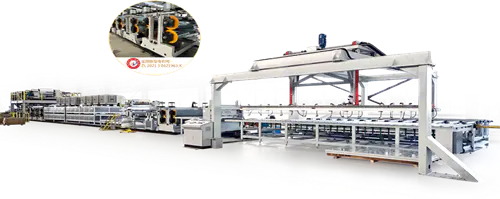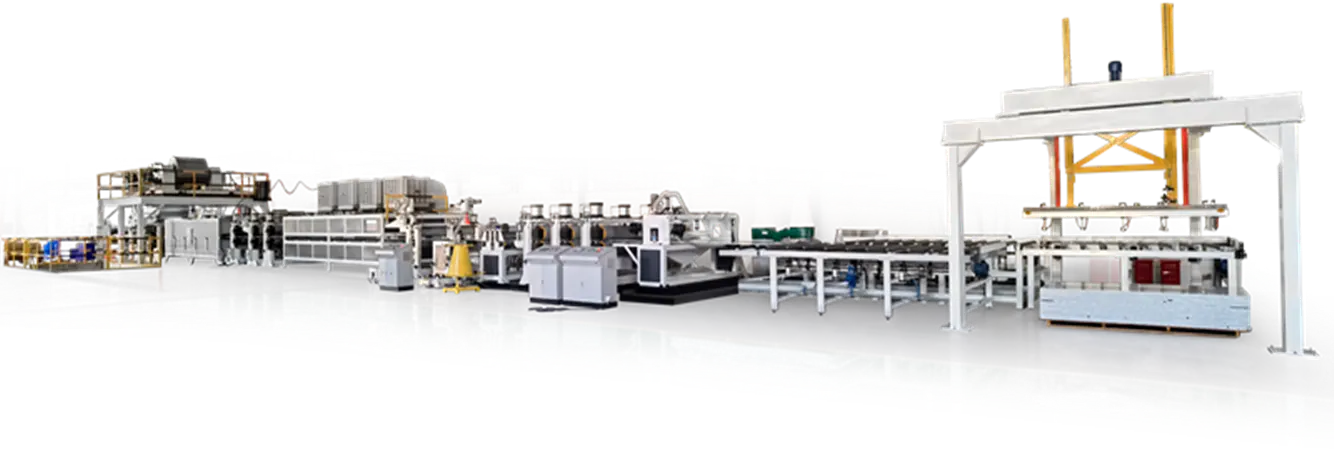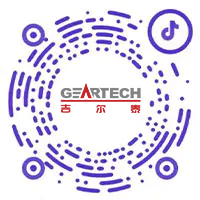Aluminum Composite Panels (ACP) have become a popular choice for outdoor applications due to their strength, lightweight nature, and attractive finishes. One of the critical reasons behind their growing usage in construction, signage, and architectural cladding is their ability to endure harsh environmental conditions. This durability is largely attributed to advanced manufacturing processes such as the Coil Coating Line and the ACP line, which play a vital role in enhancing the quality and consistency of these panels.

The Coil Coating Line is responsible for applying protective and decorative coatings to the aluminum coils used in ACP production. This continuous process ensures that each aluminum coil receives uniform paint thickness and adhesion, which significantly improves its resistance to corrosion, UV radiation, and moisture. When these treated coils are further processed through the ACP line, they are bonded with polyethylene or fire-retardant cores under high temperature and pressure. The result is a composite panel that not only maintains structural stability but also performs well in a wide range of weather conditions.
Outdoor environments expose materials to frequent changes in temperature, humidity, and sunlight. Without proper treatment, aluminum surfaces can oxidize or fade over time. However, panels produced using a high-quality Coil Coating Line benefit from multiple layers of coating, including primers and topcoats that are specially formulated to withstand environmental stress. The ACP line complements this by laminating the treated aluminum with core materials that improve impact resistance and dimensional stability, even after years of exposure.
Another advantage of using the Coil Coating Line is the ability to apply coatings in a controlled environment. This eliminates inconsistencies commonly seen in batch painting methods. Uniform coating layers not only enhance the panel’s appearance but also contribute to long-term durability. Once the coated aluminum enters the ACP line, it is precisely cut and bonded into flat panels that resist delamination and surface degradation. These characteristics are crucial for structures in coastal areas, high-traffic zones, or industrial settings where pollution and weather fluctuations are common.
The synergy between the Coil Coating Line and the ACP line ensures that each panel meets strict performance standards. The coil coating process typically involves chemical pretreatment, primer coating, baking, topcoat application, and final curing, all executed in a continuous sequence. This precision ensures adhesion and surface hardness that protect the aluminum from scratches and corrosion. When combined with the thermal bonding and lamination techniques used in the ACP line, the final product offers consistent performance in outdoor settings for many years.
In conclusion, the weather resistance and durability of Aluminum Composite Panels used in outdoor applications are largely dependent on the technologies applied during manufacturing. The integration of a reliable Coil Coating Line and a well-calibrated ACP line ensures that each panel is equipped to handle environmental challenges without compromising structural or aesthetic qualities. As urban architecture and infrastructure continue to demand resilient materials, ACP remains a preferred solution—thanks to the efficiencies and enhancements provided by these production lines.

 中文简体
中文简体 English
English Português
Português русский
русский Español
Español عربى
عربى









